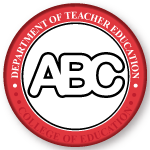The use of digital manipulatives in K-12: Robotics, GPS/GIS and programming
Document Type
Conference Proceeding
Publication Date
10-2009
Abstract
Faculty from 4-H Youth Development, Biosystems Engineering, and Education have collaborated to develop and implement an innovative robotics and geospatial technologies program, delivered in an informal learning setting of 4-H clubs and afterschool programs. Aimed at middle school youth, the program uses robotics and global positioning system (GPS) receivers and geographic information system (GIS) software to provide hands-on, self-directed learning experiences that promote personalized comprehension of science, technology, engineering, and math (STEM) concepts through experimentation. The goals of the program are to prepare youth for the 21st Century workplace by providing them opportunities to learn STEM concepts and foster positive attitudes about STEM. Funded by the National Science Foundation, the project has undergone extensive research and evaluation over the three years of the project. Results have focused on the project's impact on: a) youth learning of computer programming, mathematics, geospatial concepts, and engineering/robotics concepts and b) youth attitudes and motivation towards science, technology, engineering, and mathematics. In contrast to the preponderance of research on educational robotics relying on anecdotal and descriptive strategies, this research uses empirical, quantitative methods involving the use of comparison groups and pre-post analyses.
Recommended Citation
Nugent, Gwen; Barker, Bradley S.; Grandgenett, Neal; and Adamchuk, Viacheslav I., "The use of digital manipulatives in K-12: Robotics, GPS/GIS and programming" (2009). Teacher Education Faculty Proceedings & Presentations. 25.
https://digitalcommons.unomaha.edu/tedfacproc/25


Comments
Published in Proceedings of Frontiers in Education's 39th Annual Conference.